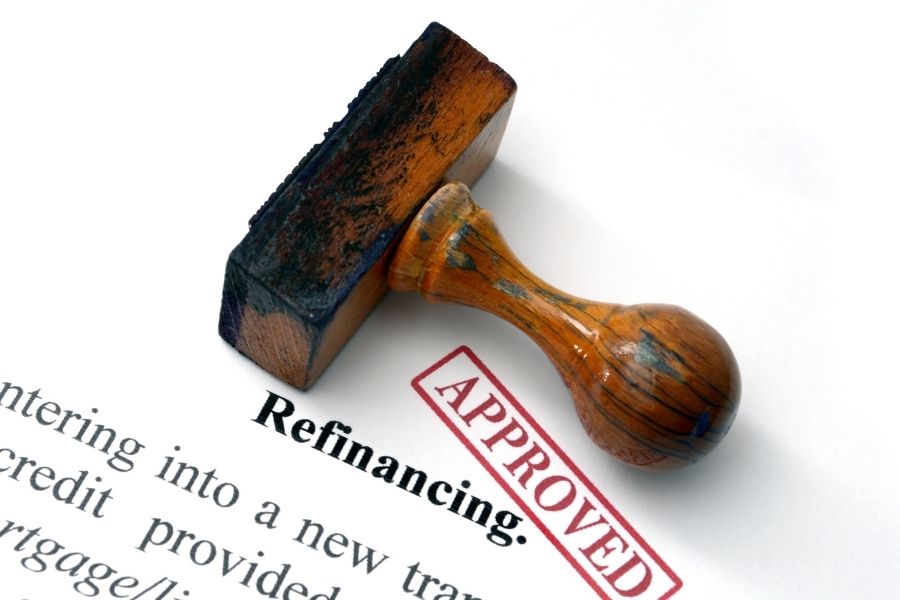People generally look for refinancing options when they are paying multiple lenders and want to consolidate everything into one. They might find more favorable terms that are going to help them manage their income and liabilities in a month, or they need to adjust to the shifts in the current market conditions.
Some of the more common reasons why people do this are to have a fixed interest rate when they currently have a variable one or to decrease their payments on their due dates. Those who choose the shorter terms often have higher payments, but they can shorten their loans and close the accounts. Others have gotten a significant improvement in their credit accounts, and they want to get more reasonable deals.
Benefits of Loan Refinancing

Borrowers can have a wide range of advantages with the right refinancing process that can help them achieve their short and long-term goals. Saving money on the interest that they have is often the goal, and securing a new debt with a lower APR will mean hundreds of dollars of savings that will go to their pockets instead of the lenders’ bank accounts.
Have the opportunity to improve cash flow, because if people are struggling with high monthly payments, refinancing can provide them with more manageable terms, allowing them to free up funds for other expenses, retirement plans, or investment. You can also take advantage of the flexibility in choosing terms that better suit your current financial situation, and tailor everything to your needs.
Consolidation is another reason why you would want to get these packages from lending institutions. You might get offered a sum from one of the companies from Besterefinansiering that will enable you to pay your debt with your friends, credit cards, and more, and this is going to simplify your budget. You can also stay on top of your finances and avoid late fees.
Different Options Available
Rate-and-Term
Activities like these are driven by a significant drop in the market to lower their mortgage payments. Those who want to have the benefits of a more favorable term and secure a lower APR can take advantage of this opportunity,
Set a new schedule that will enable you to pay off your home mortgage in the quickest way possible. For this to be worth it, you need to have a lower interest rate and an excellent credit score without defaults. If you’ve taken a 30-year term and after a decade, you notice that the interest in the market is suddenly dropping, then you can review your agreement and see if you can lower the amount that you’re paying.
Negotiating a 15-year term is also possible, but it can double your rate that will enable you to save over the life of the debt. See which one is going to work well for your situation, and talk to your lender.
Cash-Out
Convert your home equity into cash and remove co-borrowers from the obligation. Use your home as collateral when you apply for this kind and get enough funds for your wants, needs, and emergency expenses.
Lending institutions are going to do a thorough assessment of your current term, and depending on your profile, you can get locked into a new monthly installment that will be better. Standard refinancing will generally mean that the borrowers are not going to see any kind of cash on their hands, but you can withdraw the money in a cash-out transaction.
However, you’re going to lose equity in your home, and there are closing costs and risks to consider. If you default, you’re going to risk losing your property, and you might end up underwater if you can’t pay. Others do some consolidation to close their other credit products so they can only focus on one payment at a time.
Is It Going to Be Right for You?
Each person’s situation is tricky, and determining whether you’re making a good choice is going to depend on several factors. Always know your financial situation, and if you’re struggling each month, you might want to get the payments lowered. Identifying your objectives can better assess if refinancing aligns with them.
List down the potential savings that refinancing could offer, and calculate how much money you could save by comparing your current contract with those available in the market or the packages that are being offered exclusively to you. Fees should also be calculated because they can make an impact on your overall payments.
Take into account how long you plan to stay in your home or keep the loan because when you’re planning to sell or relocate in the near future, it might not be worth going through the process at all. Lenders will review your credit history when determining eligibility and interest rates for a new refinance, and if there have been significant improvements since obtaining your original mortgage, refinancing could result in more favorable terms. See more about a mortgage at this link: https://www.consumerfinance.gov/ask-cfpb/what-is-a-mortgage-en-99/.
Consult with reputable professionals such as brokers or financial advisors who can provide personalized advice based on their expertise and knowledge so you can make wiser decisions.
Factors to Consider When Choosing a Lender

Interest Rates and Fees
Lower is always better with interest rates because this means less money out of your pocket each month towards charges. Pay off everything sooner if you’re faced with a reasonable lending institution and compare the deals when shopping around.
Get quotes from several lenders before deciding to ensure that you’re getting the most competitive rates and avoiding any unnecessary costs. However, it’s best not to let attractive rates blind you from hidden fees because they can translate to more headaches in the future.
Reputation and Customer Reviews
Entrusting your future to other people is very tricky, so you would want to connect with a bank, credit union, or private financiers who are polite and easy to talk with. Read the testimonials on their site to see what others have experienced with them when it comes to refinancing and pay attention to the overall sentiment.
Customers that are generally satisfied with the service they receive are going to leave stellar reviews and see if there are complaints about the process. Checking if the financier has any industry recognitions or awards can be a good indicator of their credibility and trustworthiness. Not all companies have a perfect reputation, but you still need to avoid those who are harassing and phoning people who defaulted on them.
Loan Options Available
The amount that you can refinance will generally matter, and some are going to specialize in small loans, while others are better equipped to handle larger sums. Think about how much money you need to pay off your other debts for consolidation or to get a better term.
Consider the repayment and always prefer those who offer flexible repayment options that suit your budget and timeline. See if you can take advantage of the special features or benefits being offered to new or existing customers, like payment deferrals or hardship programs in case of financial difficulties, so you can still get a chance to stand on your feet after a setback.
Qualification Requirements
Banks may have strict qualification standards, making it difficult for certain individuals to secure a mortgage refinancing. On the other hand, there are online lending platforms that offer more flexible options and cater to borrowers with less-than-perfect credit or limited income but with higher interest rates. See more about interest rates when you click this site.
Evaluate your financial situation and determine which packages align with your qualifications. An excellent credit and stable income may open doors of opportunity for you, but if this isn’t the case, you can apply for another that will meet the guidelines of the company.
Customer Service and Support
Dealing with financial matters can often be complex and stressful, so having a lender who offers excellent support can make all the difference. You should be able to expect knowledgeable and friendly representatives who are readily available to answer any questions or concerns you may have.
They should be able to explain the loan terms and conditions clearly, ensuring that you fully understand what you’re getting into. Multiple channels of communication, such as phone, email, or live chat are often prioritized so that you can reach out easily whenever needed.
Transparency is also a good factor to know about because you need everything to be streamlined, and there should be no surprises along the way. Being responsive is crucial because you need someone to provide updates on your application status and promptly address any issues or delays that may arise.
Application Process and Timeframe
Find out what documentation is required for the loan application, as different financiers may have varying requirements, so make sure you gather all the necessary paperwork beforehand to avoid any delays.
Acknowledge the length of time it takes for the financier to review your application since some have a quick turnaround time and can provide approval within hours or days, while others may take weeks. If you need funds urgently, opt for one with a faster processing time. See whether the lender offers an online application option. This can save you valuable time and effort by allowing you to submit your information electronically from the comfort of your own home.
Collateral or Security Required
Refinancing may generally involve your home as collateral, but look for those who don’t require these. You may need to add the title or the contract that you have on your application when required because this will allow you to loan a bigger sum and get a more reasonable interest.
Get unsecured loans if you’re qualified because they typically do not require collateral but may have higher interest rates due to increased risk for lenders. These are based solely on creditworthiness and income, and this might be a better option for you.















